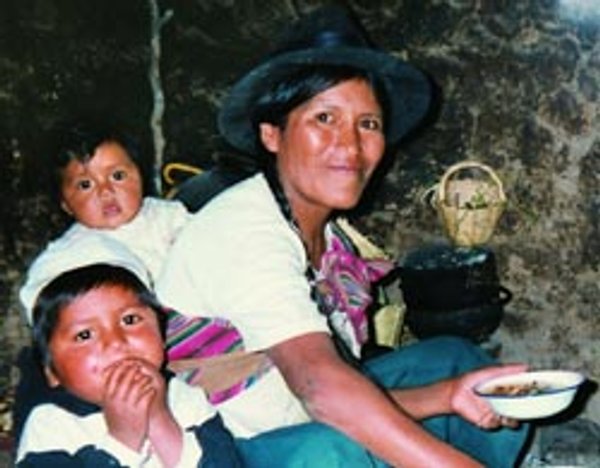“When I came from Apolo, I felt alone and out-of-place in this huge city. I didn’t know how to read or write, or how to cook,” says Consuelo Villanueva. “At CEFIM I learned to work cheerfully, and fortunately I now have a good job that helps my family,” she continues, echoing the stories of many other women involved with CEFIM.
Bolivia is currently one of the poorest countries in South America. Approximately 50% of its 8.3 million people live in poverty. In the countryside, this poverty figure reaches 94%, and results in significant migration from rural areas to the city.
Women are hit hardest by the poverty, as they have less access to education and employment opportunities. Official statistics indicate that 60% of urban women are the head of their family and lack education and training. Those who do work are usually relegated to informal employment, and make much less than men doing similar work.
A concrete remedy

CEFIM was established in 1986 in response to this need. The idea was to offer academic and technical training to poor women from the countryside and the slums surrounding La Paz.
“In our country a huge number of women are unemployed or underemployed, and are faced with a problem of survival,” says Graciela Volpe, director of CEFIM. “One of the most important causes of this problem is a lack of training. Our goal is to prepare students for various kinds of work, and to form them so that they can live with Christian dignity.”
Like most things, CEFIM was born small. A group of people moved by the teachings of St. Josemaría Escrivá, Opus Dei’s founder, wanted to offer a Christian solution to the problem of women’s poverty. They were convinced that the driving force must be the principles St. Josemaría had preached since 1928. “Work, all work,” he said, “bears witness to the dignity of man, to his dominion over creation. It is an opportunity to develop one’s personality. It is a bond of union with others, the way to support one’s family, a means of aiding in the improvement of the society in which we live and in the progress of all humanity” (Christ Is Passing By, n. 47).
CEFIM today

The construction of CEFIM’s present headquarters was made possible through the contribution of ICU -Istituto per la Cooperazione Universitaria, an Italian NGO- and the European Union. The primary sources of the project’s funding are local donations from the “Friends of CEFIM” and fund-raising activities.
Since 2002, EDA-ODT, an Australian NGO with a focus on women’s education, has helped establish training programs for Hospitality Services, Geriatric and Pediatric Services, and Food Services. These three tracks are well-adapted to the demands of Bolivia’s economy and give a quick entry to the labor force for young women who have finished secondary school.
The training received by CEFIM’s students lets them join the labor force in better social and economic conditions than they would otherwise have. Graduates find positions in service businesses, family shops, and small industries.

Additionally, CEFIM has taught more than 600 illiterate women how to read and to write, while giving them technical qualifications in basic service areas such as food service, baking, dressmaking, and weaving.
CEFIM
Calle Macario Pinilla, 345
La Paz, Bolivia
